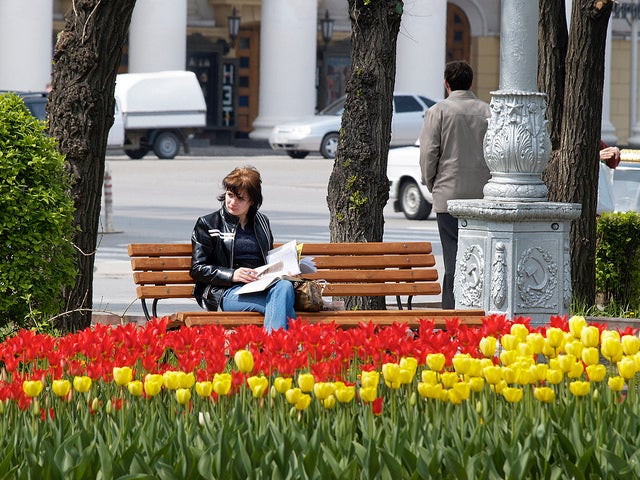 After one and a half days of intense discussions in Moscow with a group of experts from four continents, I have come away excited and energized by the possibilities of making students more aware of the business of government and becoming more active and responsible citizens.
After one and a half days of intense discussions in Moscow with a group of experts from four continents, I have come away excited and energized by the possibilities of making students more aware of the business of government and becoming more active and responsible citizens.
In most developed countries, anywhere from one-third to half of all national income is managed by the government - but how much does the average person really understand about the budget or the difficult choices and trade-offs being made by governments every day?
Should taxes be raised or lowered?
Should they spend on schools? Better hospitals? Pensions?
Is it better to run a deficit and let future taxpayers settle the bills or save today to pay down the debt?
Why is this barely discussed in schools?
To help address this basic question, the Russian Ministry of Finance, helped by the World Bank, is piloting an initiative designed to encourage responsible citizenship and greater engagement in the budget process. The idea is that high school seniors will debate and discuss these issues, using real life cases and information from government budgets.
The Moscow meeting brought together experts from Brazil, South Africa, Canada, the United States and the Netherlands to explore how countries around the world are trying to promote “Budget Literacy” through the school system.
In Canada, schoolchildren in over 4,000 schools have prepared a student budget, which they then presented to the Finance Minister in person.
In South Africa, the government is trying to empower citizens to have a greater voice in the budget process and within their communities - through building budget literacy into core school curriculum.
In Brazil, kids are being introduced at an early age to the idea that public money is their money and that it is not beneficial to cheat on your taxes or steal public funds.
The meeting in Moscow brought together teachers and regional government representatives from as far away as Yakutia and Altai to debate the issues with educational experts and officials from the Ministry of Finance and the Ministry of Education and Science.
I for one left with a keen sense of the unusual opportunity to make young people more aware and involved in the key public policy decisions which will affect their future lives.


Join the Conversation